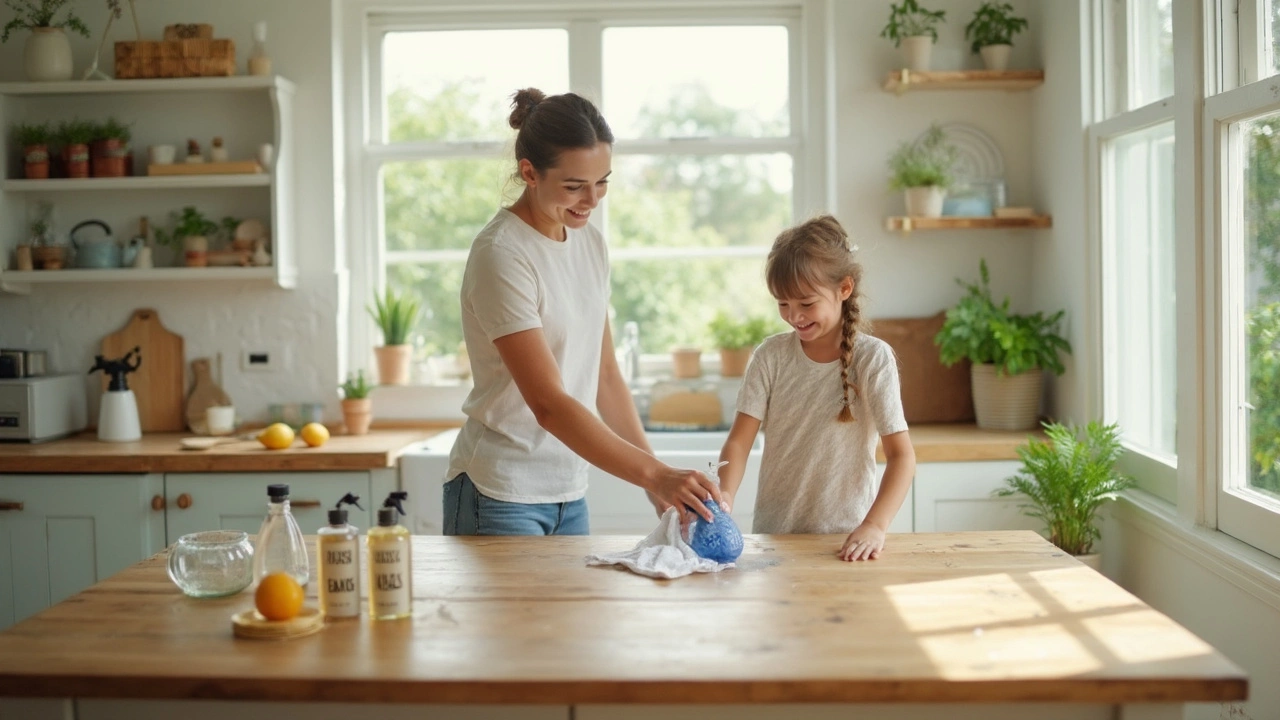Natural Disinfectant: Simple, Safe Ways to Kill Germs
Ever wondered if you can ditch the pricey chemical sprays and still keep surfaces spotless? The answer is a big yes. Natural disinfectants work just as well for most household germs, and they’re kinder to your skin, pets, and the planet. Below you’ll find the why, the what, and the how – all in plain English.
Key Benefits of Natural Disinfectants
First off, natural options cut down on harsh fumes that can irritate lungs and eyes. They’re also biodegradable, so you aren’t adding toxic runoff to waterways. Money‑wise, a bottle of white vinegar or a few drops of essential oil cost pennies compared to a single commercial spray. Finally, many natural ingredients have proven antimicrobial properties, meaning they actually kill bacteria and viruses, not just mask odors.
Three Easy DIY Recipes
1. Vinegar‑Water Cleaner
Mix one part white distilled vinegar with one part water in a spray bottle. Add a teaspoon of lemon juice for a fresh scent if you like. This blend works great on countertops, bathroom tiles, and windows. Spray, let sit for a minute, then wipe with a clean cloth. Vinegar’s acidity breaks down grime and kills many common germs.
2. Hydrogen Peroxide Spray
Use 3% hydrogen peroxide straight from the pharmacy bottle. Pour it into a spray bottle (no dilution needed) and add a few drops of tea tree oil for extra potency. Spray on high‑touch areas like doorknobs, light switches, and phone screens. Let it bubble for a minute, then wipe. Hydrogen peroxide is a strong oxidizer that destroys bacteria, viruses, and mold spores.
3. Essential Oil Disinfectant
Combine 1 cup of distilled water, 1/2 cup of rubbing alcohol (70% is fine), and 10‑15 drops of a blend of tea tree, eucalyptus, and lemon essential oils. Shake well and pour into a spray bottle. This spray is perfect for kitchens and bathrooms where you need a fresh scent plus a germ‑killing punch. The alcohol evaporates quickly, leaving surfaces dry and sanitary.
When you make your own sprays, label each bottle with the ingredients and the date you mixed them. Most homemade cleaners stay effective for about a month if stored in a cool, dark place. Avoid using vinegar on natural stone like marble or granite, as the acid can etch the surface. For those spots, stick with the hydrogen peroxide or essential oil mix.
Finally, remember that cleaning and disinfecting are two different steps. Start by removing visible dirt with a regular cleaner, then follow up with one of the natural disinfectants above. This two‑step approach ensures you’re not just moving germs around but actually killing them. Give these recipes a try and see how easy it is to keep your home fresh, safe, and chemical‑free.

Best Natural Disinfectant: What Actually Works?
Looking for a natural way to keep your home germ-free? This guide strips away the hype and shows what really works for cleaning and disinfecting, without using harsh chemicals. You'll get practical tips for every room and surfaces, plus advice on common mistakes to dodge. Learn which natural options can handle the tough stuff and where homemade solutions fall short. If you want a cleaner home that’s better for your family and the planet, this article spells it out.
Read More